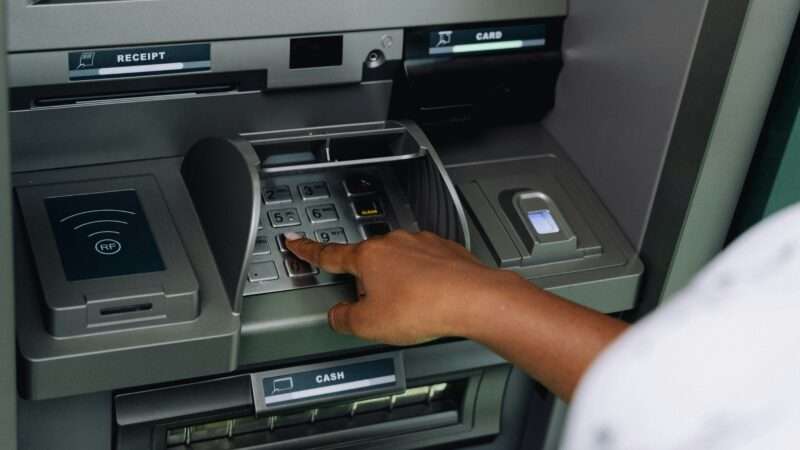
If today's announcement by the Consumer Financial Protection Bureau (CFPB) is the final skirmish in the Biden administration's war on so-called "junk fees," then it is a fitting end to a misguided and likely ineffective set of economic regulations.
Large banks will have to cap overdraft fees charged when customers try to withdraw more money than is available in their accounts, the CFPB announced Thursday. Under the new rule, which has been in development since early this year, banks will be allowed to charge no more than $5 for overdraft fees, or will have to set fees to ensure they are only covering costs and not earning a profit from them.
There are currently no limits on those fees, and the average overdraft fee is about $35, according to the CFPB. The bureau estimates that the new rule will save consumers about $5 billion annually.
But there will certainly be some unintended consequences to the change, as there are any time a price control—which is, broadly speaking, what this rule amounts to—is mandated. Rather than charging overdraft fees to cover an excessive withdrawal, banks may revert to the older practice of simply declining those transactions.
As Jon Berlau, a senior fellow at the Competitive Enterprise Institute, explained to the CFPB in 2022, the introduction of overdraft fees was originally a consumer-friendly development that was initially offered only to bank's wealthier clients but eventually became commonplace.
Indeed, many banking customers would likely prefer paying a nominal fee versus the frustration of not being able to pay for some vital purchase. That choice might soon be taken away.
"Overdraft protection is an optional, opt-in service that allows consumers to spend money they don't have at the bank's expense," wrote Reason contributor Veronique de Rugy earlier this year when the CFPB announced its intention to implement this rule. "For low-income consumers, this service is sometimes vital. And indeed, consumers report by wide margins that they are glad it exists even though it naturally comes at a cost."
Like the rest of Biden's war on junk fees, capping overdraft fees is an idea that makes sense only if one pretends all consumers have the same preferences and also assumes federal bureaucrats have perfect knowledge of the systems they are trying to regulate. I mean, why should the fees be capped at $5, rather than $10 or $2.43 or any other arbitrary figure?
Like the rest of Biden's war on junk fees, it's likely to be insignificant in the long run. For one thing, trying to control prices in one part of the economy will only push those costs into other areas. More acutely: President-elect Donald Trump's appointee to run the CFPB is likely to scrap this rule before it is scheduled to take effect in October 2025, as CNBC notes. If that doesn't happen, the new rule is likely to be subject to a legal challenge.
The Trump administration should go a step further and abolish the CFPB outright—as SpaceX CEO and unofficial Trump advisor Elon Musk has suggested doing. It is a constitutionally dubious entity created with the sole purpose of sticking the federal government's nose in places where it doesn't belong. The misguided attempt to cap overdraft fees is only the latest such example.
The post Capping Overdraft Fees Will Hurt Some of the People It Is Supposed To Help appeared first on Reason.com.







